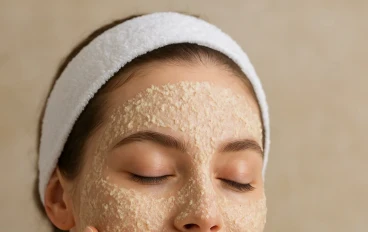
the Secrets to Natural Collagen Enhancement
 Unlocking the Secrets to Natural Collagen Enhancement
Unlocking the Secrets to Natural Collagen Enhancement
Collagen is the cornerstone of youthful skin, strong nails, and healthy hair. As the most abundant protein in our bodies, it’s essential for maintaining skin elasticity and joint health. However, as we age, our body’s natural collagen production declines. This article explores natural methods to boost collagen levels and rejuvenate your body from within.
The Power of Vitamin C: Nature’s Collagen Booster
Vitamin C is not just for fending off colds – it’s a vital component in the synthesis of collagen. By including vitamin C-rich foods like oranges, strawberries, and bell peppers in your diet, you can encourage your body to produce more collagen. Additionally, topical vitamin C serums can directly aid in skin’s collagen production, leading to firmer and more radiant skin.
Amino Acids: The Building Blocks of Collagen
Collagen is made up of amino acids, primarily proline, glycine, and hydroxyproline. To ensure your body has the necessary components for collagen creation, consume protein-rich foods such as chicken, fish, beans, and eggs. These provide the amino acids that serve as the foundation for collagen.
Antioxidant-Rich Foods: Combatting Collagen Breakdown
Free radicals can damage collagen, leading to premature aging. Antioxidants combat these harmful molecules, protecting and preserving collagen. Foods like blueberries, dark chocolate, and green tea are packed with antioxidants and can help maintain the integrity of your collagen.
Bone Broth: A Collagen Treasure Trove
Bone broth is a rich source of collagen and can be easily incorporated into your diet. Simmering bones releases collagen and other beneficial nutrients, making bone broth a potent elixir for skin health and joint mobility.
Facial Massage: Stimulating Collagen Production
Regular facial massages can stimulate blood flow and encourage collagen production. Gentle, upward strokes can help to firm the skin and reduce the appearance of fine lines.
Conclusion: A Holistic Approach to Collagen Enhancement
Boosting collagen naturally involves a holistic approach, combining a nutrient-rich diet with skincare practices. By embracing these methods, you can support your body’s collagen production and enjoy the benefits of a vibrant, youthful appearance.
Lifestyle Choices: Your Daily Habits Matter
Sleep and Stress: Quality sleep and stress management play a crucial role in collagen production. Chronic stress can increase cortisol levels, which may break down collagen. Aim for 7-9 hours of sleep and incorporate stress-reducing activities like yoga or meditation into your routine.
Sun Protection: Prolonged exposure to UV rays can degrade collagen. Protect your skin by wearing sunscreen with at least SPF 30, seeking shade, and wearing protective clothing.
Herbal Remedies: Nature’s Skin Allies
Ginseng: Rich in antioxidants, ginseng can help increase collagen in the bloodstream and may have anti-aging properties.
Aloe Vera: Known for its healing properties, aloe vera can stimulate collagen production and improve skin elasticity when applied topically or consumed as a juice.
Hydration: The Fountain of Youth
Staying hydrated is essential for maintaining collagen’s structure. Drinking plenty of water helps to keep your skin supple and can enhance the skin’s natural collagen production.
Exercise: Boosting Collagen Through Movement
Regular exercise, particularly resistance training, can stimulate the production of growth hormones that aid in collagen synthesis. This can lead to firmer skin and stronger connective tissue.
Final Thoughts: Embracing a Collagen-Friendly Lifestyle
Adopting a lifestyle that supports collagen production is a journey, not a destination. It’s about making conscious choices every day that contribute to your overall health and well-being. By following these guidelines, you can help your body preserve and produce collagen, ensuring that your skin remains vibrant and your joints stay supple for years to come.
Remember, the key to enhancing collagen naturally is a combination of diet, skincare, and lifestyle choices. Consistency and patience are vital as the benefits of these practices accumulate over time.
The Role of Minerals: Essential Nutrients for Collagen
Zinc and Copper: These trace minerals are co-factors in collagen synthesis. Foods like oysters, nuts, and seeds are excellent sources of zinc, while shellfish, whole grains, and nuts provide copper, aiding in the formation and maintenance of collagen.
Omega-3 Fatty Acids: The Unsung Heroes
Fish Oil and Flaxseeds: Omega-3 fatty acids found in fish oil and flaxseeds can help maintain the integrity of cell membranes, which may support the skin’s collagen framework.
Avoiding Sugar: The Collagen Thief
Glycation: Excessive sugar intake can lead to a process called glycation, where sugar molecules attach to proteins like collagen, weakening them. Reducing sugar in your diet can help protect collagen fibers.
Natural Skin Care: Gentle and Effective
Retinol and Hyaluronic Acid: These naturally-derived ingredients can support collagen health. Retinol, a form of vitamin A, can stimulate collagen production, while hyaluronic acid can help retain moisture, plumping up the skin.
Embrace Healthy Fats
Avocados and Olive Oil: Healthy fats are vital for collagen absorption and use. Incorporating foods like avocados and olive oil can support your skin’s health and aid in collagen production.
Consistency is Key: Building a Routine
Establishing a daily routine that includes these natural collagen-boosting strategies can lead to visible and lasting results. It’s not about quick fixes but rather about consistent care and nourishment for your body.
By integrating these natural approaches into your lifestyle, you can support your body’s collagen production and enjoy the benefits of healthy, resilient skin and joints. It’s a commitment to your health that can yield beautiful results both inside and out.
The Impact of Digestive Health on Collagen
Gut Health: A healthy digestive system is key to absorbing the nutrients that contribute to collagen production. Probiotics found in yogurt and fermented foods can help maintain a balanced gut flora, which supports nutrient absorption and collagen synthesis.
Plant-Based Boosters: Collagen’s Vegetarian Friends
Soy Products and Garlic: These plant-based foods contain substances that can promote collagen production. Soy contains genistein, which has collagen-producing properties, and garlic is rich in sulfur, necessary for collagen synthesis.
The Spice of Life: Curcumin and Collagen
Turmeric: The active compound in turmeric, curcumin, has potent anti-inflammatory properties that may protect collagen and increase its production.
Mindful Eating: Supporting Collagen Through Diet
Balanced Diet: A diet rich in whole foods, lean proteins, healthy fats, and a variety of fruits and vegetables will provide your body with the nutrients it needs for optimal collagen production.
The Beauty of Routine: Consistent Skincare Practices
Regular Exfoliation and Moisturizing: These skincare steps can help remove dead skin cells and allow better absorption of collagen-boosting products.
Advanced Treatments: Technology Meets Nature
Microneedling and LED Therapy: These modern skincare treatments can stimulate collagen production. Microneedling creates tiny punctures in the skin, prompting a natural healing process that includes collagen production, while LED therapy can boost collagen through light waves.
By embracing these additional methods, you can further enhance your body’s natural ability to produce collagen. It’s important to remember that while external treatments can help, the foundation of collagen production lies in a healthy lifestyle and diet.






































